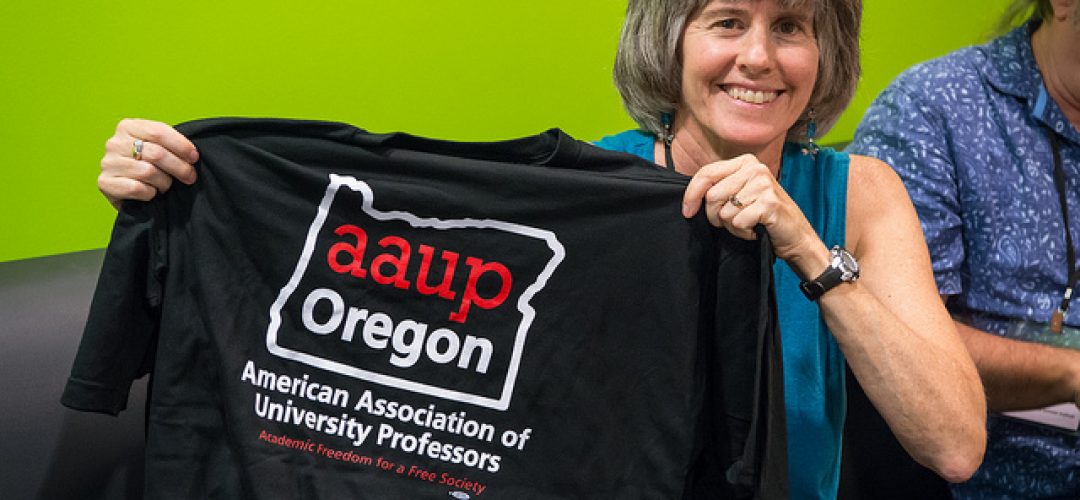Legislative Update

by Margaret Butler, Executive Director
The legislative session has moved quickly, with most bills we are interested in already being heard or about to be heard. The key issue, funding, will not be worked out until the very end of the session. In the meantime, your legislative committee has been busy going through bills, recommending positions, and helping draft testimony. Both President José Padín and Vice President for Political Action-Elect Ramin Farahmandpur have testified on pending legislation. VP for Political Action Erna Gelles and United Academics’ Joe Lowndes, chair of the local’s State and Higher Education Issues Committee, have also spoken to legislators in various forums.
Here’s the rundown: the first big bill deadline came and went on Friday April 7th and all bills in the policy committees that didn’t make it on to a committee agenda for a work session, to be held by next Tuesday April 18th, are now dead. The good news is this includes many bad bills that attacked collective bargaining rights and/or made other negative changes to the higher education system.
We support SB 196, which would allow adjunct faculty who work for more than one state institution to combine their hours for the purpose of qualifying for health care benefits. The mistreatment of adjuncts hurts all faculty and we were happy to stand with AFT and OEA in this push to make a change.
We worked with the Universities to revise a bill that they wanted that takes post-doctoral scholars out of PERS, SB 214. Most post-doc scholars never vest in PERS and the employer contributions are lost. We were able to help shape the bill so that post docs are now guaranteed an employer match for a different retirement fund and the post doc work is defined in a way that doesn’t give employers an incentive to move bargaining unit work toward the post docs. We are happy to support the revised bill as it moves forward.
José went to Salem to testify twice in opposition to bad PERS bills, including, SB 559 and SB 560, and SB 913. Two of these bills (SB 559 and SB 560) are still alive. We are watching the struggles around PERS and public employee health care very carefully.
This week José will provide written testimony in support of HB 3170, which would amend the Public Employee Collective Bargaining Act. This will allow faculty who take on roles like chair, head, program director, or primary investigator, the ability to continue protection under collective bargaining agreements, even though a small part of their duties are currently considered supervisory under PECBA.
This week the Ways and Means Education Sub-Committee started working on the higher education budgets, looking first at the community colleges. Next week they will look at the universities and Monday the 17th is the day for public testimony. Faculty, students and staff will all be there to support more funding for higher education.
We continue to raise the need for more revenue, in conjunction with the amazing work of the Better Oregon Coalition. In spite of discussions with the business community about which revenue solutions businesses would be willing to support, it’s not clear that there will be an agreement about new revenue. You may remember that during the M97 campaign, many business associations claimed they would be willing to pay more in corporate taxes; their objection was that M97 was flawed.

